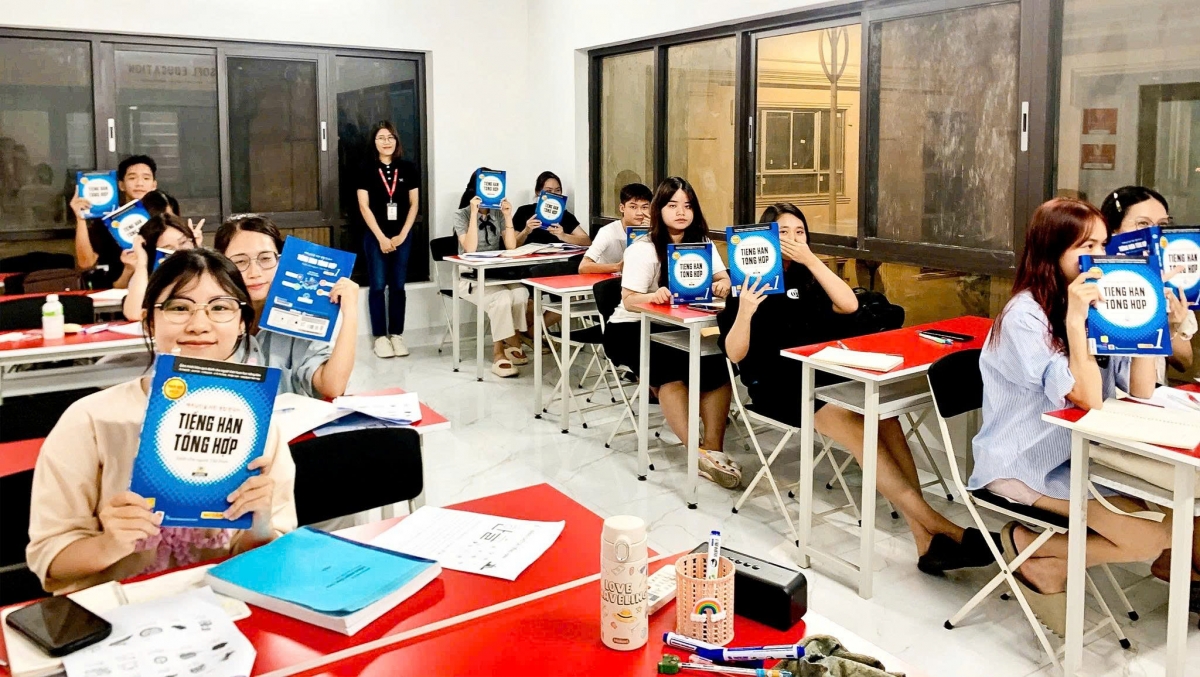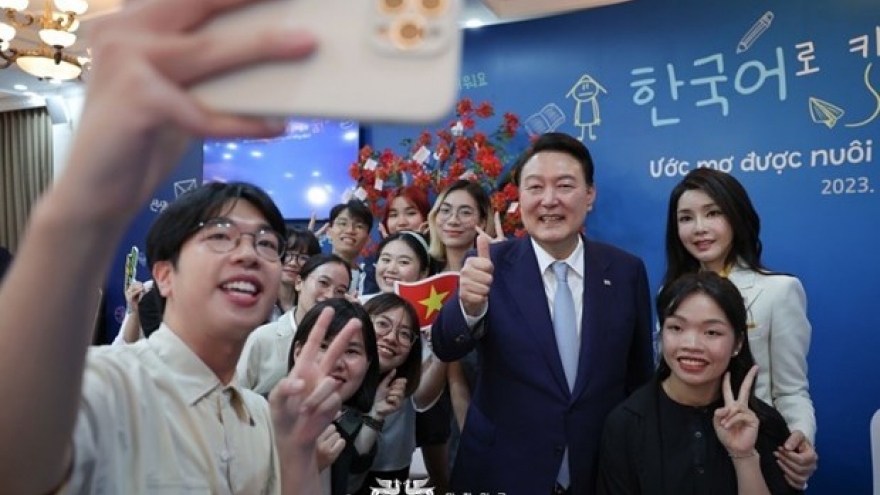Korean language teaching to be strengthened in Vietnamese schools
VOV.VN - The Republic of Korea will send teachers to teach Korean at schools in Vietnam that are already offering Korean language classes, in order to enhance the quality of Korean language education in Vietnam as part of the official school curriculum.

This is part of a newly signed document between the Ministry of Education and Training (MOET) of Vietnam and the Ministry of Education of the Republic of Korea, which supplements the earlier memorandum of understanding on education cooperation between the two sides.
Under the supplementary document, the number of Korean language teachers dispatched to Vietnam will be decided annually through discussions between the parties. To the extent possible, the Vietnamese side will actively support essential matters related to the entry and residence of the dispatched Korean teachers, including the granting of visas and exemption from work permits, in accordance with relevant laws and regulations of Vietnam.
The Korean side will also encourage and support Korean language classes at general education schools in Vietnam that have adopted Korean as a regular subject, including extracurricular classes. Conversely, the Vietnamese side will support schools that have adopted Korean as a regular subject to ensure the smooth implementation of Korean language education, based on students’ needs, the capacity of the schools, and local government regulations.
According to the MOET’s International Cooperation Department, in the 2024–2025 academic year, the MOET facilitated procedures to receive nine volunteer teachers to work at several general education schools in Hanoi, Bac Ninh, and Hai Phong. The Korean side supported the completion of textbooks for Grade 3 and Grade 4 and learning materials for Grades 6 to 10.
The supplementary document was signed in Seoul during the recent state visit to the Republic of Korea by General Secretary To Lam, at the invitation of President Lee Jae-myung.
At present, nearly 50 universities in Vietnam offer Korean language courses. Universities with Korean language departments are attracting many applicants and are effectively implementing exchange and cooperation activities with Korean educational institutions.
Each year, the MoET and the Korean side conduct training programmes for teachers and staff in both countries to strengthen information technology capacity. The Korean side also provides training in e-learning and digital transformation for educational administrators within the APEC cooperation framework.
The number of Vietnamese students studying in the RoK is currently about 43,000, mainly in Korean language programmes and undergraduate courses. Each year, around 21,000 candidates take the TOPIK exam. The Korean side grants hundreds of undergraduate and postgraduate scholarships to Vietnamese citizens annually.




